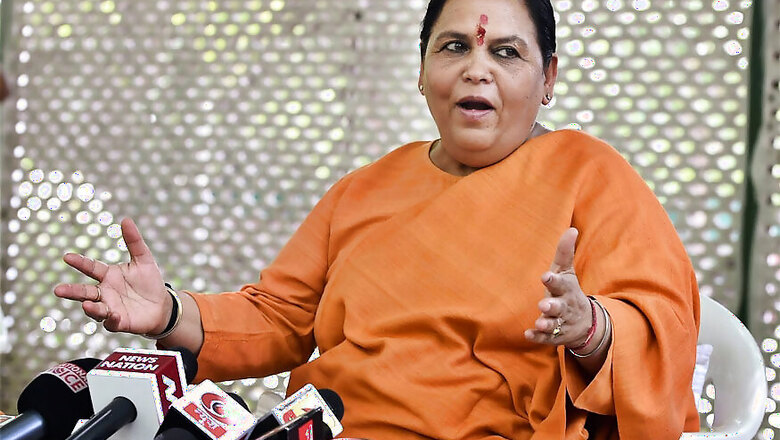
views
New Delhi: As many as 27 BJP parliamentarians and state legislators have been accused of inciting hate through their public address, giving saffron party the top spot in the latest report on hate speech.
According to a report by Association for Democratic Reform (ADR) and National Election Watch (NEW), the saffron party was followed by All India Majlis-E-Ittehadul Muslimeen (AIMIM) and Telangana Rashtra Samithi (TRS) with six cases each.
A total of 58 sitting Members of Parliament (MPs) and Members of Legislative Assemblies (MLAs) had declared cases related to hate speech.
Among the 15 Sitting Lok Sabha MPs, who have declared cases related to hate speech against them, 10 were from BJP, followed by AIUDF, TRS, PMK, AIMIM and SHS with one case each.
Of the sitting MLAs, who declared their cases, 17 are from BJP, followed by TRS and AIMIM with five cases each, TDP with three, two each from Congress, All India Trinamool Congress, JD(U) and SHS, one each from DMK, BSP and SP and two are Independents.
Meanwhile, none of the sitting lawmakers from the Rajya Sabha have declared any hate speech cases against them.
According to the joint report, among the states, Telangana fared the worst, followed by Bihar and Uttar Pradesh.
Eleven sitting MLAs with declared cases related to hate speech are from Telangana, four from Bihar, nine legislators from Uttar Pradesh, four from Maharashtra and three each from Andhra Pradesh and Karnataka. Others in the fray include Uttarakhand and West Bengal too.
Among parliamentarians, AIMIM’s Asaduddin Owaisi and AIUDF’s Badruddin Ajmal have declared cases related of hate speech against them. Jhansi MP Uma Bharti is the only Union cabinet minister to have declared cases against her.
ADR has now recommended that "strict action must be taken against the candidates giving hate speech prior and during the elections, and against the elected legislators even after the elections, if found guilty of indulging in hate speech”.
They have also supported the Law Commission recommendation where it was stated that in the general model code of conduct it must be state that it prohibits any kind of speech that promotes, or attempts to promote, feelings of enmity or hatred between different classes of the citizens of India on grounds of religion, race, caste, community, or language, by a candidate or his agent or any other person with the consent of a candidate or his election agent for the furtherance of the prospects of the election of that candidate or for prejudicially affecting the election of any candidate.
One of the primary difficulties in assessing the scope of freedom of speech and expression has been the deliverance of hate speeches which increases in numbers especially during the election season and is often seen as an attempt to divide the voter base into communal lines.
Among the laws that govern hate speech in India, there is no dearth of provisions.
Section 153A of the Indian Penalises Code penalises ‘promotion of enmity between different groups on grounds of religion, race, place of birth, residence, language, etc., and doing acts prejudicial to maintenance of harmony’. Thereafter, Section 153B IPC penalises ‘imputations, assertions prejudicial to national-integration’, Section 295A IPC penalises ‘deliberate and malicious acts, intended to outrage religious feelings of any class by insulting its religion or religious beliefs’, Section 298 IPC penalises ‘uttering, words, etc., with deliberate intent to wound the religious feelings of any person’.
Even Section 505(1) and (2) IPC penalises publication or circulation of any statement, rumour or report causing public mischief and enmity, hatred or illwill between classes and Section 8 disqualifies a person from contesting election if he/she is convicted for indulging in acts amounting to illegitimate use of freedom of speech and expression.


















Comments
0 comment